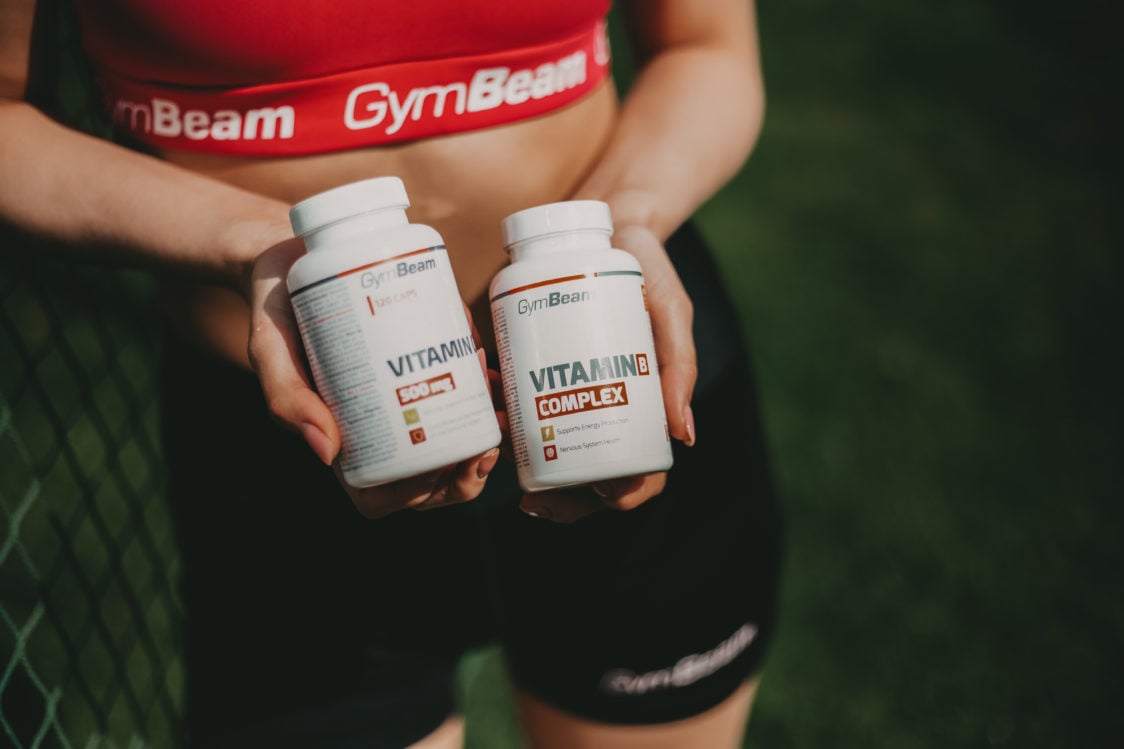Table of Contents
During the summer, we are very handy when it comes to work. In the morning, we wake up full of energy, rest and motivated to give our best at work or school. Energy does not leave us even during the afternoon. It is not until around eight o’clock in the evening that we begin to feel a little tired. Then autumn comes and we feel as if someone has pressed a button and initiated sleep mode.
You get up until the third alarm clock in the morning and you consider it your best performance of the day. You wander helplessly in the kitchen with the intention of making coffee that will, perhaps, save you. When you find that it doesn’t help either, you turn on the autopilot and with a vision of an afternoon nap, you can endure the working morning. What about exercise in the afternoon? This seems like a complete sci-fi.
Admit it: Who sees yourself in this? Don’t worry, you are not alone. That’s why, in today’s article, we will tell you about the best dietary supplements and effective ways to overcome autumn fatigue.
Why are we tired in the autumn?
There are several reasons why we feel more tired in the autumn. It can even be a combination of several factors that will change an otherwise productive person into a tired sloth.
1. Shorter days

The period when there is still daylight at nine o’clock in the evening and we can spend time outside will come back in several months. When the sun shines all day, we can’t be in a bad mood and spend the day under the duvet in bed. But that changes in the autumn.
In the morning you get up when it’s still dark and you return from work or school when it’s already dark. You can’t enjoy the sun’s rays that much, which results in worse mood. According to statistics, up to 40% of Europeans suffer from vitamin D deficiency whilst for 13% of them the deficiency is serious. [26]
In this case, Vitamin D supplementation could help, at least partially. It is also used to improve mood in people who have long-term mental health problems. [1]
You can learn more about Vitamin D in the article Vitamin D and everything you need to know about it.
2. Worse weather
Someone can really enjoy the damp autumn season, or even look forward to reading an interesting book by the fireplace with warm socks on and hot tea. For others, it may be, on the contrary, suffering. Instead of exercising in warm weather, there’s running in rain, cold and windy weather. In the worst case, you can’t even get yourself to do sports, which results in remorse and bad mood, and perhaps a desire to drive it away with some sweet snacks. The same scenario may repeat the next day. Autumn and winter have similar characteristics to the weather in Nordic countries, where mental problems predominate. The connection between fatigue, bad mood and weather is therefore definitely not accidental. [27]

3. Change of diet
You may not even realize it, but the time of year can have a big impact on your diet. On hot days, you are not even that hungry. When you feel hungry, you try to ward it off with a refreshing salad, chilled dairy products, popsicle, frozen or seasonal fruit. What foods will you reach for in the autumn? Naturally, it will be warm and nutritionally rich meals. For example, a light chicken salad may be replaced by goose meat or main course with a soup, and for the dessert a scoop of ice cream may be replaced by sweet dinner rolls. Try to remind yourself how you feel after such foods. You may realize that this might be one of possible explanations of your fatigue. If you have a really heavy lunch, you probably won’t avoid the afternoon “coma”.
4. Less movement

Cold and damp weather encourages us to spend more time at home with family. If you have a step measurement app on your phone or smart watch, check how many steps you take in the summer and how many in the fall. Are you surprised? When it’s warm outside, you probably don’t mind going to the store at eight in the evening. Now? You’d rather get in the car than stumble somewhere in cold and dark weather.
You can also notice the difference in sports activity. How much did you exercise in the summer, when the fitness centers were open and the sun was shining, and how much do you exercise now, when the gyms are closed and it’s not so sunny outside at all? Most of us have noticed at least a slight decrease in activity.
5. Seasonal affective disorder
However, the feeling of fatigue can also stem from a much more serious cause, such as poor eating habits or decreased activity. It is a “seasonal affective disorder” that belongs to depressive illnesses. It is also associated with a lack of sunlight. However, the disease also affects hormone levels and can ultimately lead to severe feeling of anxiety and depression. As mentioned above, it often occurs in the Nordic countries, because there is a lack of sunlight. However, during the autumn and winter season, even Central Europeans can’t avoid it. If you feel that you might have this problem, you should seek medical help.
You might be interested in these products:
9 ways to overcome autumn fatigue
Now that we have listed the most common causes of autumn fatigue, we can finally get into a fight!
1. Focus on diet
If you pour poor quality fuel in the car, it won’t drive as it should. Our body also works like that. If you eat fast food, processed and heavy foods, you cannot expect to be full of energy. Your body won’t function properly as well. If you feel tired in the autumn, your diet is the factor you should start with. You don’t know how to do it? Learn more in the article How to calculate energy and macronutrient intake for weight loss or muscle gain help you?
Fatigue can hit really hard during the day. If this is also your problem, we don’t recommend going on a diet or eating in a calorie deficit. It may deepen the feeling of fatigue even more. A balanced and healthy meal is the best choice. In that way you will neither lose nor gain weight. In it also about a slight calorie surplus. If you don’t want to do calorie calculations, start by following common sense eating. You probably know which foods to choose in order to eat healthy.

Try to focus on simple rules of healthy eating:
- Start eating when you feel a slight hunger and stop eating when you feel about 80-90% full. If you are already full, you should not eat the whole portion.
- Try to eat 3 main meals a day (breakfast, lunch, dinner) and have with 1-3 snacks.
- Make sure you have a source of protein in every meal, such as dairy products, meat, plant meat substitutes and the like. You can read more about protein sources in the article: 20 foods that you can use to easily add protein to your diet.
- Don’t forget complex carbohydrates (e.g. whole grain side dishes) and healthy fats (e.g. nuts, extra virgin olive oil, omega-3 fatty acids).
- Consume fruit and vegetables regularly. You should eat about 400 g of vegetables and 200 g of fruit a day.
2. Don’t forget your drinking regime

An equally important factor influencing fatigue is the drinking regime. We should drink 30-45 ml per kg of body weight per day. In practice, this means that a 60-kilo woman should drink 1.8 – 2.7 l and an 80-kilo man 2.4 – 3.6 l. However, this is the bare minimum. The need for water will increase, for example, with sports, when you should at least replenish the amount of fluids you have lost by sweating. Your drinking regime should consist mainly of still water or unsweetened mineral water.
If you feel that it is impossible for you to drink such an amount, do not despair. Water from food also counts to the total water intake. Did you know that, for example, strawberries, watermelon or boiled pumpkins contain 90-99% water? Thanks to these foods, adequate fluid intake will be easier for you.
If you do not pay attention to the drinking regime, in addition to fatigue, you may also suffer from dizziness, headache, general weakness, chapped lips, kidney problems, impaired heart function, indigestion and many other problems. [3] [4]
You can read more about the drinking regime in the article: Hydration before, during and after training and how to avoid dehydration
3. Move regularly
Exercise has an undoubtedly positive effect on health. It improves overall health, quality of sleep, helps to lose weight, improves cognitive function and even has a positive effect on overall feeling of fatigue. Each person should engage in 150 minutes of moderate-intensity physical activity or 74-minute high-intensity physical activity per week.
To begin with, you should include regular physical activity at least 3 times a week to create a certain habit. Don’t set it aside, even if you don’t feel like doing it. Your body will reward you with an endorphin release, which brings a feeling of happiness. Over time, you will realize that even when you are tired, you are looking forward to exercise, because it improves your mood and boost you with fresh energy, thanks to which you are able to easily cope with everyday challenges.
4. Don’t sleep too much or too little

During sleep, one rests and gains strength for the upcoming days. In addition, however, many processes take place in the body at the same time, which have a great impact on human health. If you are not a professional athlete, it is ideal for you to sleep 7-9 hours. According to studies, people who sleep too little or too much are at increased risk of seeking medical attention over time due to health problems.
So if you planned to sleep as much as possible to do your best for your health, we will probably disappoint you, but it won’t be very effective. If you sleep too much, you may feel the same discomfort you feel when you lack sleep (fatigue, malaise, feeling of a light hangover). [7][8]
5. Avoid alcohol and cigarettes
Alcohol consumption is closely related to the previous point – the quality of sleep, which it affects rather negatively. In addition, if you indulge in alcohol, you will have to go to the bathroom more often at night due to the diuretic effect of alcohol, which will also disrupt your sleep. After a boisterous party, you will wake up the next day, at best, only tired, and at worst, you will suffer from an unpleasant hangover. [9] [10]
To avoid these negative consequences, follow the maximum recommended amount for alcohol intake:
Women – 10 grams of alcohol: 125 ml of wine or 0.3 l of beer, or 40 ml of strong alcohol
Men – 20 grams of alcohol: 250 ml of wine or 0.5 l of beer, or 60 ml of strong alcohol
Smoking will also certainly not have a positive effect on fatigue. If a smoker tells you that he has to have a cigarette to get refreshed, it is probably not a cigarette that gives him energy, but fresh air and a short break from work.
In the long run, cigarettes supply the body with toxins that have a negative effect on the immune system. At the same time, smoking also has a negative effect on fatigue and causes a decrease in athletic performance. We won’t recommend any amount for cigarettes. The less you smoke, the better for you. However, the best thing to do is to put an end to this bad habit. [11] [12]
6. Try to reduce long-term stress

In our life, one may encounter two main types of stress – acute and chronic stress. In connection with fatigue, we will mainly focus on the negative effects of the latter, i.e. chronic stress. It is a type of stress when you feel under pressure for a long time, which has negative effects on your body, such as increased fatigue. [13]
There are many ways to reduce stress, depending on its cause. If you feel that never-ending task list at work causes your stress, the solution may be a better organization of the day, which will bring order and a certain certainty to your life. By planning what you will do and when, you will gain an overview and, in addition, you may feel satisfied with the feeling of ticking off the individual tasks you have managed to finish.
However, if you are stressed by other situations, such as a bad family situation, the current pandemic and others, the so-called mindfulness method can help you. It is a psychotherapeutic method that, among other things, helps reduce stress and fatigue. How to use this method? Simply put, it’s all about your ability to become aware of the present moment.
From the beginning, it is easiest to apply this method in the comfort of your home. Make yourself comfortable and focus on your breath. Calm down and try not to think about anything else. If you can’t concentrate just on your breath, try counting inhales and exhales. Some unwanted thoughts will certainly occur. It is always necessary to realize that you are thinking of something, and to push this idea into the background and focus on your breath again.
This way, you can keep yourself living in the present moment during all activities. If you do something, always try to focus on just one particular thing – it can be running, eating or washing dishes. Perceive this activity with all your senses. As a result, you will get rid of negative thoughts at a given moment and learn to control them so that they don’t control you.
7. Make yourself happy

You have surely experienced time when you don’t feel like yourself, you don’t feel like doing anything, you feel under the weather and then something comes along that makes you happy? Your day turns 180 degrees in a second and you feel full of energy. That’s exactly why you should enjoy your life. There is nothing wrong with making yourself happy, and there are so many options.
You can buy a nice piece of clothing, have a healthy sweet snack, read a book, play with your dog, listen to a podcast, order dinner instead of cooking, plan to play board games with your family and so on. You will see that even small things can make your day better.
8. Respect your needs
Do you follow all the principles that should reduce fatigue, and yet it still affects you in all respects? Accept it and take the situation as it is. Every day is not the same, just as you cannot function to the maximum every day. If you wake up in the morning and feel that this is not going to be your day, don’t blame yourself. Try to do your best to make you feel as comfortable as possible despite the fatigue and don’t go to extremes. It is normal to occasionally postpone training session, have a nap after lunch, or stay on the couch and watch TV instead of cleaning. If this doesn’t happen every day, you don’t have to have any regrets. You will see that if you let yourself to do nothing from time to time, you will be more eager to embark on new challenges during the next day.
9. Supplement the necessary vitamins and minerals
In the autumn, a lack of vitamins or minerals in the body can cause fatigue. If you can’t get them into your body with a balanced and varied diet, you can also take dietary supplements. In the next part of the article, you will learn which supplements are important in connection to fatigue.
Adaptogens

Adaptogens are substances that help our body manage physical and mental stress, reduce fatigue and anxiety. For example, we can recommend Ashwagandha. Its effects have been studied, for example, in relation to sleep. The researchers have found that after eight weeks of using Ashwagandha, people who had insomnia experienced a reduced falling asleep time, improved sleep, and reduced feeling of tiredness after waking up. [14] [28]
Learn more about it in the article: Ashwagandha – an inconspicuous herb that hides miracles
- Recommended daily dose of Ashwagandha: 300 – 500 mg daily. [19]
Similar effects can bring ginseng or Rhodiola Rosea. It is able to significantly reduce fatigue and, in addition, reduce possible burnout due to long-term stress. [15]
Vitamin D

Vitamin D deficiency is also associated with other negative effects than just fatigue. In addition, low levels of Vitamin D may be associated with heart disease and contribute to osteoporosis, cancer, asthma or other immunological diseases.
You should focus on its intake especially in autumn and winter. When your skin is exposed to UVB sun rays, it manufactures vitamin D. However, we cannot enjoy so much sunshine during this season. We spend most of our time inside, whether at work or at home, so it is important to supplement vitamin D. [1]
Recommended daily dose of vitamin D: 20 μg daily. However, its requirements may be higher. [16]
Magnesium
Magnesium is a mineral, deficiency of which has a direct effect on fatigue, headache, sleep disorder, stress, cramps, nervousness or anxiety. Many studies point to the fact that a large part of the population suffers from magnesium deficiency. This can be caused by increased consumption of alcohol, caffeine, semi-finished products and also a higher incidence of stressful situations.
- Recommended daily dose of magnesium: 300 – 400 mg [29]
B vitamins
B vitamins affect many processes in the body. In particular, vitamins B2, B6 and B12 have a significant effect on reducing fatigue and exhaustion. Women in particular might also be interested in its significant impact on hair quality and hair loss. Lack of B vitamins is very common in vegans who do not have balanced diet or do not take supplements, because the source of these vitamins are, for example, meat and dairy products.
You can read about vitamins that have a positive effect on hair quality in the article How to improve hair quality and which vitamins are the best?
- Recommended daily dose of vitamin B2: 1.4 mg [30]
- Recommended daily dose of vitamin B6: 1.4 – 1.6 mg [31]
- Recommended daily dose of vitamin B12: 4 – 5.5 μg [32]

Vitamin C
Another nutrient that has a positive effect on fatigue reduction is vitamin C. Its effectiveness has been confirmed, for example, in a clinical study, which showed statistically significant differences between office workers who received vitamin C intravenously and those who didn’t. The reduction in fatigue after vitamin C administration was noted two hours after administration and lasted for one full day.
In addition, vitamin C is a great antioxidant that protects cells from free radicals and premature aging. It is also a partner of iron because it helps its absorption. In the case of nutritional supplements, it is therefore appropriate to take both of these supplements at the same time, or to eat a source of iron (meat) together with a source of vitamin C (paprika).
- Recommended daily dose of vitamin C: 80 – 125 mg [17]
Iron

Iron plays an important role in the body because it is used, for example, to produce hemoglobin and myoglobin. These are two proteins to transport oxygen. Iron deficiency is relatively common, especially in women. During menstruation, blood loss occurs, which goes hand in hand with a reduction in iron levels. Typical symptoms of deficiency include fatigue, weakness and shortness of breath.
Women can also supplement their daily iron need with protein. Yum Yum Whey protein is enriched with vitamins and minerals.
Recommended daily dose of iron: 10 – 15 mg [33]
What do you need to remember?
Autumn fatigue can be caused by many factors, which are manifested in varying intensity. If you feel that it is true for you, focus mainly on a balanced diet, drinking regime, enough exercise, 7-9 hours sleep, have fun and try to reduce stress level.
At the same time, remember that sometimes you won’t have your day, and fatigue may hit each of us. Therefore, it is not a bad idea to put your feet on the table and do nothing from time to time. You will see that one lazy day will give you energy and the desire to embark on new challenges.
Do you know some proven tips to overcome fatigue? If so, definitely share it with us. If this article was useful, don’t forget to share it with your friends so that they know how to cope with the autumn fatigue.
[1] Sarfraz Zaidi [Power of Vitamin D, United States of America, Sarfraz Zaidi, 2013.
[2] Altman P. – Blood and Other Body Fluids – https://www.ncbi.nlm.nih.gov/pmc/articles/PMC2908954/#R1
[3] Culp KR, Wakefield B, Dyck MJ, Cacchione PZ, DeCrane S, Decker S. – Bioelectrical impedance analysis and other hydration parameters as risk factors for delirium in rural nursing home residents. – https://www.ncbi.nlm.nih.gov/pubmed/15345731
[4] Lawlor PG – Delirium and dehydration: some fluid for thought? – https://www.ncbi.nlm.nih.gov/pubmed/12353122
[5] Friedenreich, Orenstein (2002) – Physical Activity and Cancer Prevention: Etiologic Evidence and Biological Mechanisms – https://doi.org/10.1093/jn/132.11.3456S
[6] Colcombe a kol. – Aerobic Fitness Reduces Brain Tissue Loss in Aging Humans – https://academic.oup.com/biomedgerontology/article/58/2/M176/593589
[7] Namkee – Too little sleep and too much sleep among older adults: Associations with self‐reported sleep medication use, sleep quality and healthcare utilization – https://onlinelibrary.wiley.com/doi/abs/10.1111/ggi.12749
[8] Jenna Fletcher – Why sleep is essential for health – https://www.medicalnewstoday.com/articles/325353
[9] Michael Breus – What is the difference between REM and NREM sleep? – https://www.sharecare.com/health/sleep-basics/what-is-nrem-sleep
[10] Sarkar, D., Jung, M. K., & Wang, H. J. – Alcohol and the Immune System. Alcohol Research : Current Reviews – https://www.ncbi.nlm.nih.gov/pmc/articles/PMC4590612/
[11] Qiu, F., Liang, C.-L., Liu, H., Zeng, Y.-Q., Hou, S., Huang, S., Lai, X., & Dai, Z. – Impacts of cigarette smoking on immune responsiveness: Up and down or upside down? – https://doi.org/10.18632/oncotarget.13613
[12] Degens, H. – Smoking-induced Skeletal Muscle Dysfunction From Evidence to Mechanisms. American Journal of Respiratory and Critical Care Medicine. – https://pubmed.ncbi.nlm.nih.gov/25581779/
[13] Kelsey N Parker – Effects of Distress and Eustress on Changes in Fatigue from Waking to Working – https://pubmed.ncbi.nlm.nih.gov/26227991/
[14] Biswal – Effect of Withania somnifera (Ashwagandha) on the Development of Chemotherapy-Induced Fatigue and Quality of Life in Breast Cancer Patients – https://journals.sagepub.com/doi/10.1177/1534735412464551
[15] Ishaque a kol - Rhodiola rosea for physical and mental fatigue: a systematic review – https://www.ncbi.nlm.nih.gov/pmc/articles/PMC3541197/
[16] Deutsche Gesellschaft für Ernährung – https://www.dge.de/wissenschaft/referenzwerte/vitamin-d/
[17] Vitamin C – https://www.dge.de/wissenschaft/referenzwerte/vitamin-c/
[18] Gilliland a kol –Dietary Magnesium, Potassium, Sodium, and Children's Lung Function – https://academic.oup.com/aje/article/155/2/125/107977
[19] Ashwagandha – https://examine.com/supplements/ashwagandha/
[20] National Health Service (2017) – Vitamins and minerals: B vitamins and folic acid NHS choices – https://www.nhs.uk/conditions/vitamins-and-minerals/vitamin-b/
[21] Hind M. Almohanna . Azhar A. Ahmed . John P. Tsatalis (2018) – The Role of Vitamins and Minerals in Hair Loss: A Review – https://doi.org/10.1007/s13555-018-0278-6
[22] Harvard Health Publishing (2016) – The best foods for vitamins and minerals – https://www.health.harvard.edu/staying-healthy/the-best-foods-for-vitamins-and-minerals
[23] Sang-Yeon Suh a kol –Intravenózní podání vitaminu C snižuje únavu pracovníků v kanceláři: dvojitě zaslepená randomizovaná kontrolovaná studie – https://www.ncbi.nlm.nih.gov/pmc/articles/PMC3273429/
[24] Kamal Patel – Iron – https://examine.com/supplements/iron/
[25] INDI – Women and Iron – https://www.indi.ie/fact-sheets/fact-sheets-on-women-s-health/546-women-and-iron.html
[26] Amrein a kol. – Vitamin D deficiency 2.0: an update on the current status worldwide – nature.com/articles/s41430-020-0558-y
[27] Saarijärvi – Seasonal affective disorders among rural Finns and Lapps – https://onlinelibrary.wiley.com/doi/abs/10.1111/j.1600-0447.1999.tb07206.x
[28] Langade – Clinical evaluation of the pharmacological impact of ashwagandha root extract on sleep in healthy volunteers and insomnia patients: A double-blind, randomized, parallel-group, placebo-controlled study – https://pubmed.ncbi.nlm.nih.gov/32818573/
[29] Magnesium – https://www.dge.de/wissenschaft/referenzwerte/magnesium/
[30] B2 – https://www.dge.de/wissenschaft/referenzwerte/riboflavin/
[31] B6 – https://www.dge.de/wissenschaft/referenzwerte/vitamin-b6/
[32] B12 – https://www.dge.de/wissenschaft/referenzwerte/vitamin-b12/
[33] Železo – https://www.dge.de/wissenschaft/referenzwerte/eisen/
